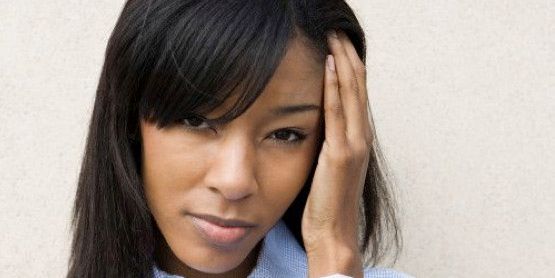Are Black Women Really Invisible?

That is what one study suggests. I was recently sent an article by a friend published on Psychology Today about black women being invisible. Hmmm, I know you're thinking, exactly what do they mean? The study noted in the article suggests that black women are often overlooked physically in public and their comments often go unheard or brushed off in social settings. There were two parts to the study. One part was a facial recognition of sorts and the other was a recall of comments made during a discussion.
Before I go any further, I want to say that I reached my own conclusion before I even finished reading the article. The very last class I took before graduating with my BA in Psychology was a class, more like a seminar on African-Americans. I remember the professor mentioning at the beginning of the course how women in general, but especially black women are often left out of or not used in research studies. One would argue, it is because how research is. I work in research. People feel that there may be some motives that aren't clear, but no research is clear nor would it be dependent if everything was known up front of what would be studied. It creates this bias which could have a serious effect on results. The other reason for not enough blacks in studies in general, is because a lot of research studies that involve studying the black population simply do not get funded. My professor wanted to do a study about stress and it's effects on the heart of black people. Our stressors are different. Our heart rates escalate when we walk into a mall for fear of being watched or followed because we may steal or when we are in class or work and we are the only Sistas Representin' (SRs) in the room. So, no wonder we may get overlooked in social studies because no other race besides our own wants to acknowledge us!
As I stated before, the study breaks itself down into the two parts. The first is where mixed races and genders were all in a crowd. Later, white participants were shown photos, some photos of the women who were in the crowd and some photos of people who were not there at all. The participant was asked to recall the faces they had seen. They recalled fewer black women and incorrectly at that, as opposed to any other race or gender.
In the second part of the study, mixed races and genders were in a social setting. Everyone, I'm guessing (it doesn't note in the article), were making comments. Later, the participants were asked to match comments with the participants in the social setting. Again, black women were overlooked. Matches were made either incorrectly or not at all to a black woman, but black men and their comments were matched more.
The article starts off suggesting that there are powerful black women whose lives impact the world. Women like Oprah, Michelle Obama, Maya Angelou, Rosa Parks, etc., are all women that we know something about. However, look at that number. Of course, we as black people can recall so many more black women who have made an impact, but how many of those black women go overlooked? In all, this does nothing more than suggest that the issue of race continues and remains to be an issue when it comes to importance, achievements, success and more.
What can we do to "fix" this? I feel there is no direct answer for this, but you have to be the change you want to see. If this is how society in general perceives us, we have to do more to be heard. A lot of women are doing what they can and more but we must come together. I would rather stand with 100 others than one other. We have to realize that this is greater than just us. We must think about not only our future, but generations that will come after us. I would like for my niece and her children to know that there is medical care tailored to the needs of the African-American and not just the general public. Our voice and our values should be appreciated equally, just like everyone else's. We deserve it.
Sidebar-I did a search for "black women" in Google Images (safe-search off) and the first row of pictures were of black women who were naked, using a sex toy or in some type of scene from a porn. In the second row, there was an image still, in the midst of it all, from a video about black women on the rise in the field of business. I then did a search for "white women" and in the first row were no naked pictures of white women, some in bikinis or loose clothing, but I saw no body parts or porn images. Try the search yourself to see the stark contrast.
My name is Tasha Burton and I am the owner/operator of Belle Butters, LLC. I am a rater for a research study about ADHD/ASD as my full-time gig. I am also a photography hobbyist. I love to write, read, attend concerts and analyze this thing we call life. I plan on leaving a few heavy footprints on the world, so my evolution is in constant motion. I love to empower and teach others what I have learned and share useful information. Visit her blog Blogging Impulse.

No comments: